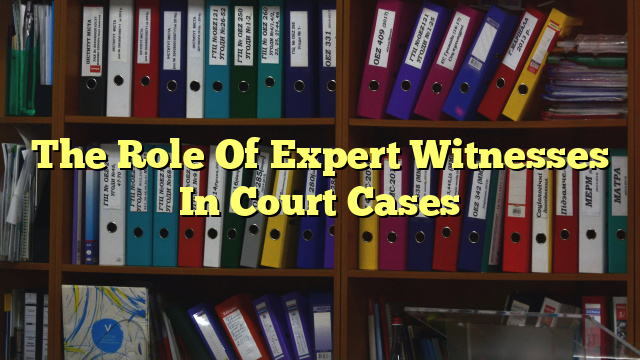Table of Contents
- Roles and Responsibilities of an Expert Witness
- 4 Pillars of an Expert Witness
- Point of Testifying as an Expert Witness
- Code of Conduct for Expert Witness
Roles and Responsibilities of an Expert Witness
The role of an expert witness is to provide an opinion in the court of law, based on their expertise. They provide an objective opinion on a matter that is disputed. The expert witness is an impartial member of the trial and will not take sides in the matter. They are expected to be unbiased, honest, and accurate in providing their opinions. The primary role of the expert witness is to provide the court with information on a subject that is outside of the knowledge of the court or the jury.
The expert witness may be called upon to review evidence and testimony that has already been presented. They will use their expertise to objectively evaluate the information, in order to provide a reliable opinion. They may also be asked to provide additional testimony or evidence, if needed. Any evidence or testimony provided by the expert witness must be based on their expertise and must be reliable.
The expert witness is also expected to act in an ethical manner. They must not provide false or misleading testimony, or offer testimony that is not based on their expertise. They must also not provide biased testimony or make any statements that are not supported by the evidence. The expert witness must be prepared to answer questions and provide answers based on their expertise.
4 Pillars of an Expert Witness
The 4 pillars of an expert witness are:
- Knowledge: The expert witness must have knowledge in the subject they are providing testimony on.
- Objectivity: The expert witness must provide an unbiased opinion and must not take sides.
- Integrity: The expert witness must be honest and accurate in their testimony.
- Ethics: The expert witness must act in an ethical manner and must not provide false or misleading testimony.
Point of Testifying as an Expert Witness
The point of testifying as an expert witness is to provide the court with an unbiased opinion on a matter that is outside of the knowledge of the court or the jury. The expert witness must provide reliable and honest testimony, based on their expertise. They must also act in an ethical manner, and not provide false or misleading testimony.
Code of Conduct for Expert Witness
The code of conduct for an expert witness includes the following:
- Provide reliable and accurate testimony based on their expertise
- Be impartial and unbiased in their testimony
- Do not provide false or misleading testimony
- Do not provide biased testimony
- Do not make any statements that are not supported by the evidence
- Answer questions truthfully
- Provide answers based on their expertise


Expert witnesses play an invaluable role in court cases by providing valuable insight and expertise. Their testimony helps to shape the outcome of a case.